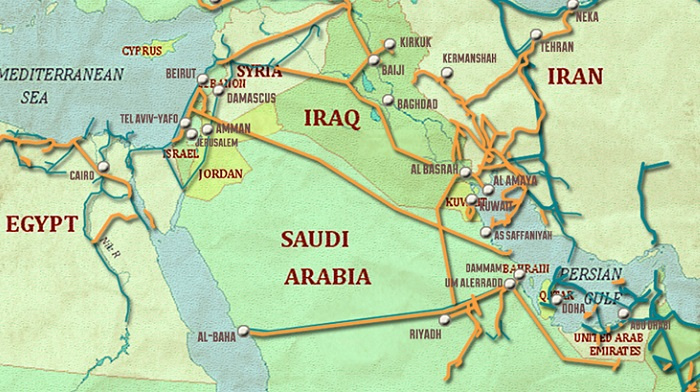How Iran Should Translate Its Geopolitical Advantages into Economic Opportunities

Despite an economy revolving around energy, Iran still lacks a robust energy strategy, a weakness that can render our national interests vulnerable. To reduce the degree of this vulnerability, what we need is formulation of middle-term and long-term strategies to put an end to monopoly of oil & gas industry on our economy. After all, developments such as shale oil exploration and production in the United States have made countries such as Saudi Arabia see a sharp drop in the level of their strategic importance as a key energy provider for the world.
In the meantime, Iran should know that its neighbors are heavily investing on energy projects, particularly in the gas sector. UAE and Saudi Arabia are reshifting focus towards gas projects, while major gas discoveries have been made in Egypt, Occupied Palestinian Territories [/Israel], and the Iraqi region of Kurdistan. Qatar has been playing the field for a long time already. During the sanction years, international companies abandoned Iran’s oil & gas projects to partner with Iran’s neighbors and competitors, providing them with sensitive data on Iran’s energy plans and resources.
Expanding energy lines is the another major issue which can be a mixed blessing for Iran. By hosting pipelines, every country tries to increase its share of the geopolitical cake. With its key strategic and geopolitical position, Iran should not miss even the shortest pipelines. At the crossroads of the world’s energy basket, Iran could help transit energy to both the industrial world that needs its industries and markets to keep running, and emerging economies.
Since the collapse of the Soviet Union in 1991, Iran has had the opportunity to serve as a transit route for landlocked former Soviet republics, Turkmenistan, Uzbekistan, Kazakhstan, and the Republic of Azerbaijan. Opportunities that were not dearly appreciated. For instance, Iran could have hosted a gas pipeline from Turkmenistan to Turkey, to make its northeastern Central Asian neighbor dependable on its services, but that has not taken place so far. Iran has also had plans to export its energy via Iraq to the Mediterranean region and beyond, and to Pakistan and India through the Peace Pipeline. Nonetheless, so far it has failed to realize such plans which could prove lucrative, particularly if they could feed the energy-hungry Indian market with a population of over one billion.
At the current circumstances, Turkmenistan and Qatar are rivals for Iran in the gas industry. Turkmenistan is making a pivot to the East having an eye on the prospective TAPI line (Turkmenistan-Afghanistan-Pakistan-India). Lack of security in Afghanistan has so far stopped the project from completion; however, it still can be a threat to Iran’s share of energy sale to emerging economies.
Lack of progress in the TAPI project is a respite for Iran to jumpstart its plans to export gas to Pakistan and India. In the tense situation between Islamabad and New Delhi, Iran could follow a dual track policy: continuing plans with the Peace Pipeline that carries gas to India through Pakistan, and in the meantime, constructing a subsea pipeline that transfers gas directly to India.
* This is a summraized version of Abdol-Reza Faraj Rad’s speech in a panel titled “Geopolitics of Energy and Iran’s National Interests”, hosted by Strategic Council of Foreign Relations. Faraji Rad is Iran’s former ambassador to Norway. The complete version of the speech can be accessed here.

